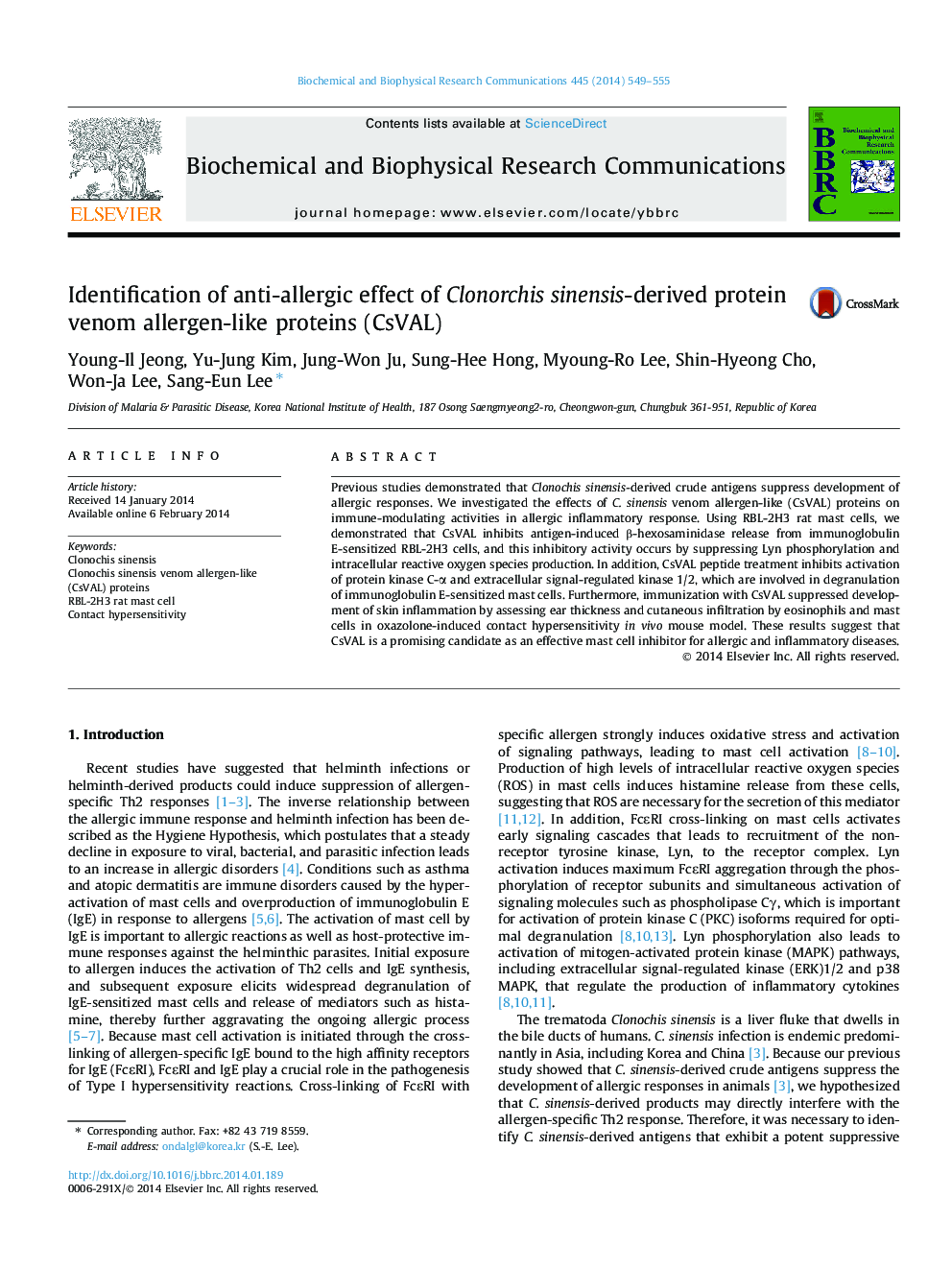| Article ID | Journal | Published Year | Pages | File Type |
|---|---|---|---|---|
| 1928547 | Biochemical and Biophysical Research Communications | 2014 | 7 Pages |
•C. sinensis-derived CsVAL peptide inhibits the degranulation of mast cells.•CsVAL peptide inhibits FcεRI-mediated signal transduction in antigen-stimulated mast cell.•CsVAL peptide prevents ROS generation in antigen-stimulated mast cells.•CsVAL peptide inhibits the chronic contact hypersensitivity response.
Previous studies demonstrated that Clonochis sinensis-derived crude antigens suppress development of allergic responses. We investigated the effects of C. sinensis venom allergen-like (CsVAL) proteins on immune-modulating activities in allergic inflammatory response. Using RBL-2H3 rat mast cells, we demonstrated that CsVAL inhibits antigen-induced β-hexosaminidase release from immunoglobulin E-sensitized RBL-2H3 cells, and this inhibitory activity occurs by suppressing Lyn phosphorylation and intracellular reactive oxygen species production. In addition, CsVAL peptide treatment inhibits activation of protein kinase C-α and extracellular signal-regulated kinase 1/2, which are involved in degranulation of immunoglobulin E-sensitized mast cells. Furthermore, immunization with CsVAL suppressed development of skin inflammation by assessing ear thickness and cutaneous infiltration by eosinophils and mast cells in oxazolone-induced contact hypersensitivity in vivo mouse model. These results suggest that CsVAL is a promising candidate as an effective mast cell inhibitor for allergic and inflammatory diseases.
